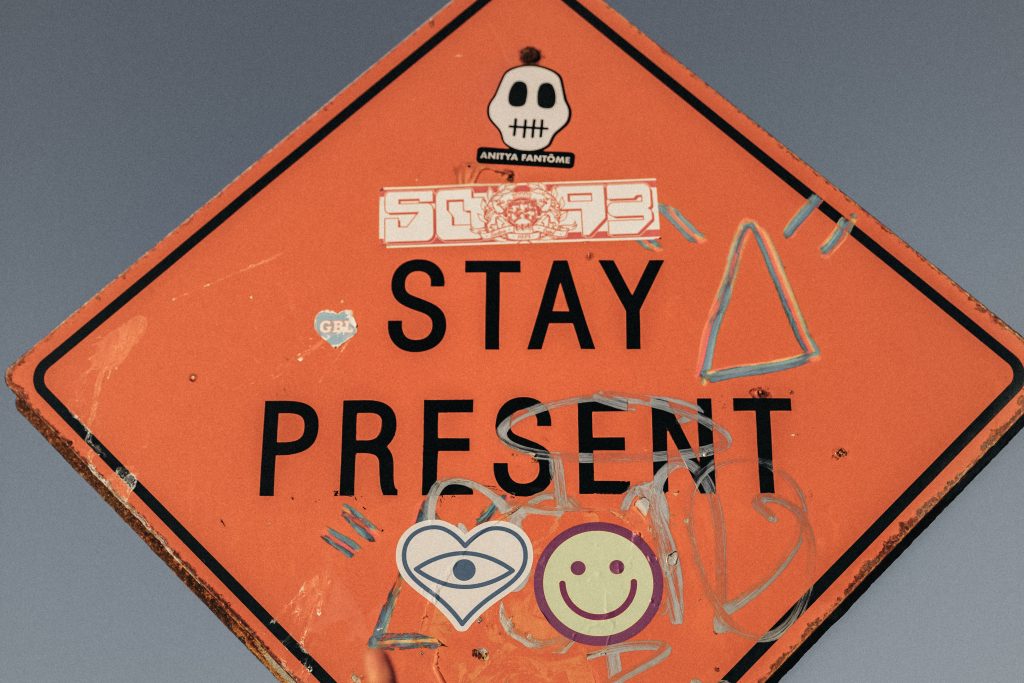I think it’s been a good summer, weather-wise, not a blistering one, but generally sunny with the occasional bad day. This last week has been a bit squally with the tail end of the two storms. For me, it’s felt like a long summer. Whether that’s because I’ve been able to get outside more as I’ve been working from home or because, with the coronavirus crisis and the lockdown and restrictions, I haven’t been able to make plans. This means I have had to take things day by day.
One of the basic principles of mindfulness is living in the moment, focussing on the here and now. The emphasis is on appreciating and valuing the precise moment you are experiencing. Doing this represents what is called ‘grounding’ (see below). Practising mindfulness is good for one’s mental health because tuning into ‘now’ stops one projecting about what is going to happen ‘next’, in the future. Projection often leads to what is called rumination (see below) and then to worry and anxiety.
Mindfulness practice is a recognised treatment for depression and anxiety. Professor Mark Williams, developed an 8 week programme to help people with depression. This work was undertaken when he and his team worked at the University of Bangor. He subsequently moved to Oxford University and continued his work on mindfulness there. The 8 week mindfulness programme is recommended by the National Institute for Health and Care Excellence (NICE) as a way to prevent depression in people who have had 3 or more bouts of depression in the past.
We have been told that the level of depression and anxiety in both the UK and the USA has risen significantly as a result of the pandemic. A survey of 3,500 participants by the Office for National Statistics (ONS) has revealed that almost one in five (19.2%) people experienced depression in June, almost double the 9.7% with symptoms in the nine months to March. Statistics show the USA has seen a similar reaction with the national rate of anxiety tripling in the second quarter compared with the same period in 2019 (from 8.1 percent to 25.5 percent), and depression almost quadrupled (from 6.5 percent to 24.3 percent). Some of this depression is inevitably related to people worrying about aspects of how the coronavirus crisis can affect them: health fears for themselves or their families, worries about employment and money, loneliness as a result of lockdown.
It is interesting that the level of depression in teenagers in the UK appears to have dropped considerably. A survey undertaken by the University of Bristol records an 8-9% drop in self-recorded stress levels by teenagers in May 2020 as against October 2019. This could represent a decline due to the individuals being removed from a perceived source of stress. It could be related to it being well publicised that young people are far less likely to be seriously affected by Covid 19. Or it could simply be rooted in a strong preference not to be in school!
If you find yourself caught in a loop of worrying about the future, use the links below to learn more about mindfulness and consider committing to practising it in your daily life. You will probably be surprised at how effective it can be.
‘Live in the Moment’ by Z.Hereford on Essential Life Skills.net
‘How to Live in the Moment’ by Trudi Griffin on wikihow
‘How to Live in the Moment and Stop Worrying’ by Charles A. Francis on Lifhack.org
‘Here’s a Simple, Proven Way to Live in the Moment’ by Mel Robbins on YouTube
‘Grounding Exercises’ on livingwell Australia website
‘Rumination: Problem Solving Gone Wrong’ by Edward A. Selby on Psychology Today website
’10 Tips to Help you Stop Ruminating’ by Erica Cirino on healthline.com
‘Mindfulness’ on NHS website
‘Introduction to Mindfulness’ by Professor Mark Williams on YouTube
‘The Science of Mindfulness’ by Professor Mark Williams in YouTube
‘Coronavirus Anxiety: How to Protect Your Mental Health’ by Navit Schechter on netdoctor.co.uk
‘Depression in British Adults Doubles during Coronavirus Crisis’ by Pamela Duncan and Patrick Butler on The Guardian online
‘An Epidemic of Depression and Anxiety Among Young Adults’ by Andreas Kluth on Japan Times online
‘Coronavirus: Teens’ anxiety levels dropped during pandemic, study finds’ on BBC website

